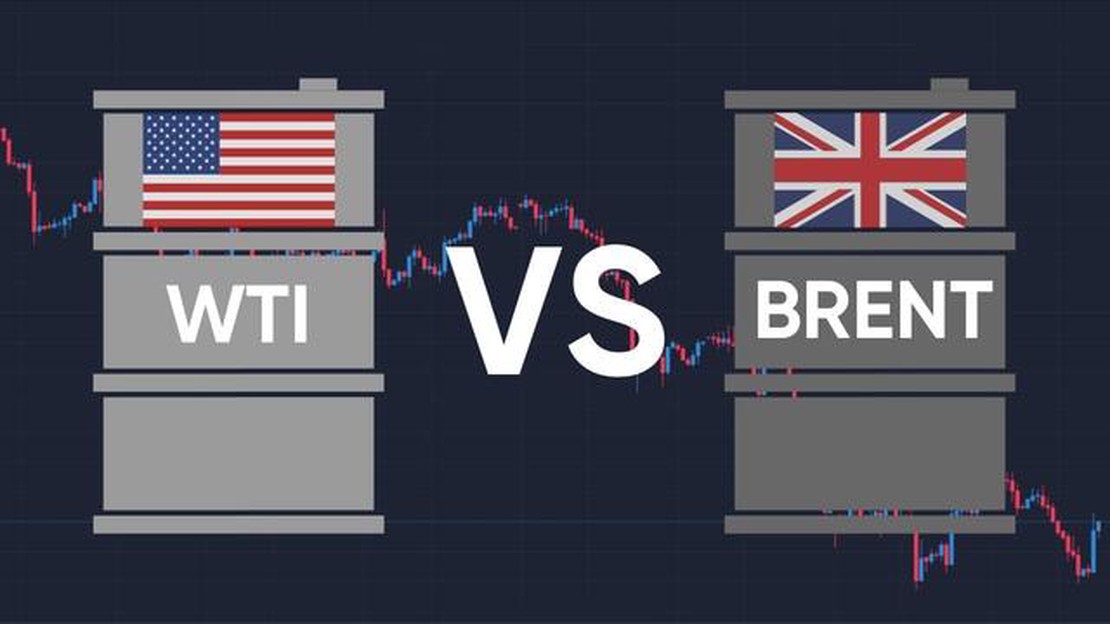Most Commonly Used Approach by Equity Hedge Strategies
Commonly Used Approach by Equity Hedge Strategies Equity hedge strategies are investment strategies that aim to provide positive returns by investing …
Read Article
Brent crude oil is one of the most important benchmarks for pricing global oil. It is widely used as a reference for determining the price of crude oil in the international market. Understanding how the price of Brent crude is calculated is crucial for traders, investors, and policymakers.
The price of Brent crude is determined through a complex calculation that takes into account various factors. One of the key factors in the calculation is supply and demand. When the demand for oil exceeds the supply, the price of Brent crude tends to rise. Conversely, when the supply exceeds the demand, the price of Brent crude tends to fall.
Another important factor in the calculation of Brent crude price is geopolitical events and market sentiment. Political instability, conflicts, or disruptions in major oil-producing regions can have a significant impact on the price of Brent crude. Additionally, market sentiment, such as investor expectations and speculation, can also influence the price of Brent crude.
It is also worth noting that the price of Brent crude is influenced by currency exchange rates. Since oil is traded in US dollars, changes in exchange rates can affect the price of Brent crude in other currencies. For example, if the US dollar strengthens against other currencies, the price of Brent crude in those currencies may increase.
In conclusion, the calculation of Brent crude price is a complex process that takes into account various factors, including supply and demand, geopolitical events, market sentiment, and currency exchange rates. Understanding these factors is essential for anyone involved in the oil industry or interested in oil prices.
Several factors impact the calculation of Brent Crude price. These factors can vary on a daily basis and are closely monitored by traders, investors, and oil industry professionals.
 2. OPEC Decisions: The Organization of the Petroleum Exporting Countries (OPEC) plays a significant role in determining oil prices, including Brent Crude. OPEC member countries regularly meet to discuss and decide on production levels, which can impact the supply and price of oil in the market.
3. Economic Factors: Economic conditions, including global economic growth, GDP growth rates, inflation, and interest rates, can influence the demand for oil and, consequently, Brent Crude prices. A strong global economy often leads to increased oil consumption, resulting in higher prices.
2. OPEC Decisions: The Organization of the Petroleum Exporting Countries (OPEC) plays a significant role in determining oil prices, including Brent Crude. OPEC member countries regularly meet to discuss and decide on production levels, which can impact the supply and price of oil in the market.
3. Economic Factors: Economic conditions, including global economic growth, GDP growth rates, inflation, and interest rates, can influence the demand for oil and, consequently, Brent Crude prices. A strong global economy often leads to increased oil consumption, resulting in higher prices.
Read Also: Reserve Money in Sri Lanka 2023: Explained and Analyzed4. Currency Exchange Rates: Brent Crude is traded in US dollars, so fluctuations in currency exchange rates can impact its price calculation. If the US dollar weakens against other currencies, it can lead to higher Brent Crude prices and vice versa. 5. Geopolitical Events: Geopolitical events, such as conflicts in major oil-producing regions or political instability in oil-exporting countries, can have a significant impact on oil prices. Uncertainty and disruptions in the oil supply chain can cause prices to rise. 6. Weather Conditions: Weather conditions, especially during the hurricane season, can disrupt oil production and transportation, leading to supply disruptions and, subsequently, higher Brent Crude prices. Severe weather events can also impact oil demand, affecting prices. 7. Inventory Levels: The level of oil inventories and stockpiles can also impact Brent Crude price calculation. High levels of inventory can indicate an oversupply, leading to lower prices, while low inventories can signal a potential shortage, resulting in higher prices.
It is important to consider that these factors interact with each other, and their combined effect determines the Brent Crude price at any given moment. Traders and market participants closely analyze and interpret these factors to make informed decisions about buying, selling, and trading Brent Crude oil.
Supply and demand are two fundamental factors that play a crucial role in determining the price of Brent Crude oil and other commodities. Supply refers to the quantity of a particular good or service that is available in the market, while demand represents the desire and ability of consumers and businesses to purchase that good or service at a given price.
When it comes to Brent Crude oil, supply and demand dynamics can have a significant impact on its price. Any changes in the global supply of oil, such as disruptions in production or increases in output, can result in fluctuations in the price of Brent Crude. For example, if there is a decrease in production due to political instability in a major oil-producing region, the supply of Brent Crude could decrease, leading to an increase in its price.
On the other hand, changes in the demand for oil can also affect the price of Brent Crude. Factors such as economic growth, geopolitical tensions, and government policies can influence how much oil is consumed by different countries and industries. For instance, if there is a surge in economic activity, the demand for Brent Crude may rise, putting upward pressure on its price.
Read Also: What is GDM service? | A comprehensive guide to understanding GDM service
Supply and demand for Brent Crude oil are determined by various factors, including global economic conditions, production levels of major oil producers, technological advancements, and shifts in consumption patterns. Understanding these factors and their potential impact on supply and demand is crucial for accurately assessing the future price of Brent Crude.
In conclusion, supply and demand are key elements that drive the price of Brent Crude oil. Changes in the global supply and demand for oil can lead to fluctuations in its price. Being aware of these factors and their potential impact is essential for better understanding the calculation and forecasting of Brent Crude prices.
Brent crude oil is a type of oil that is extracted from the North Sea. It is one of the major benchmarks for pricing oil around the world.
The price of Brent crude oil is calculated based on various factors such as supply and demand, geopolitical events, and economic indicators. It is determined through an extensive trading process on the global commodities market.
The price of Brent crude oil is important because it serves as a benchmark for oil prices worldwide. It influences the cost of gasoline, heating oil, and other petroleum-based products. It also impacts the economies of countries that rely heavily on oil exports.
There are several factors that can affect the price of Brent crude oil. These include changes in production levels, geopolitical events, global economic growth, and changes in oil inventories. Additionally, factors such as weather conditions and transportation disruptions can also have an impact on the price.
Yes, there are other benchmarks for pricing oil, such as West Texas Intermediate (WTI) and Dubai/Oman crude oil. These benchmarks are used in different regions and have their own pricing dynamics.
Commonly Used Approach by Equity Hedge Strategies Equity hedge strategies are investment strategies that aim to provide positive returns by investing …
Read ArticleIs FBS available for use in USA? FBS is a popular online trading platform that offers a wide range of financial services to traders worldwide. With …
Read ArticleIs Volume Analysis Effective in Forex Trading? Volume analysis is a commonly used tool in the forex market, aimed at determining the strength of price …
Read ArticleInternational transfer process in IDBI Bank If you are looking to make an international money transfer, IDBI Bank provides a seamless and secure …
Read ArticleStocks with Option Chain: A Comprehensive Overview Stock options serve as a powerful tool for investors to maximize their potential returns and manage …
Read ArticleAre Forex Signals Legit? Forex trading is a popular investment option that promises high returns. However, for beginners, navigating the complex world …
Read Article